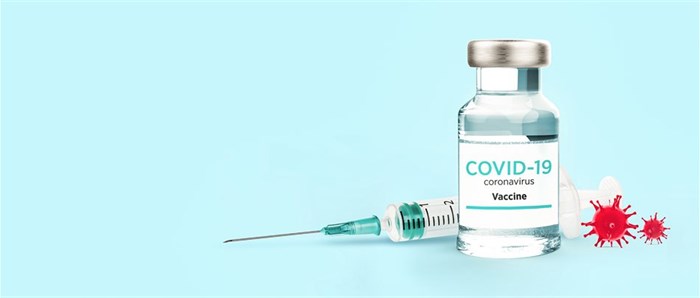







The Covid-19 vaccines produce protection against the disease by developing an immune response to the SARS-Cov-2 virus. The vaccine stimulates an immune response to an antigen, a molecule found on the virus and provides a supply of ‘memory’ T- and B-lymphocytes that help fight that virus in the future.
There are four types of Covid vaccines and they are all trying to achieve the same things: Immunity to the virus, reduction of symptoms if you are infected and being able to slow down or stop transmission. South Africa is currently using the Johnson & Johnson (J&J) single dose vaccine but, regardless of which vaccine you receive, you won’t reach full protection until around two weeks after the vaccination. Your immune system needs this time to develop the antibody response.
Yes. The vaccine that is being used in South Africa is safe and has been given to millions of people around the world. Although it was developed very quickly to save lives, it has gone through the same rigorous processes as other vaccines.
All medical products – including the Covid-19 vaccine - have to be approved by South African Health Products Regulatory Authority (SAHPRA) before they can be administered.
Some individuals vaccinated with the J&J vaccine have experienced temporary, mild side effects. They are similar to those experienced with other vaccines, such as soreness at the injection site, muscle pain, chills and a headache. Some also experienced fatigue and nausea. These are nothing to worry about and will disappear within a couple of days.
People who are prone to allergies should inform the healthcare personnel administering the vaccine beforehand. This, in order for them to observed and monitored for a longer period after receiving the vaccine. However, if you experience a severe allergic reaction after getting a Covid-19 vaccine, vaccination providers – or your healthcare provider - can provide care rapidly and call for emergency medical assistance.
No. None of the Covid-19 vaccines contain the live virus that causes the coronavirus. The J&J vaccine uses a harmless, modified form of the common cold virus in humans, called adenovirus. The vaccine will help your immune system fight the virus but will not infect you with it.
No vaccine is 100% effective but fortunately, the emerging data on Covid-19 vaccines have a high efficacy, at least against some of the variants.
If a vaccine has 70% efficacy, it means a person vaccinated in a clinical trial is around two-thirds less likely to develop the disease than someone in the trial who didn’t receive the vaccine. Due to the severity of the virus, a 50% efficacy threshold was set for Covid-19 vaccine.
No. Having the Covid-19 vaccination remains a personal choice as confirmed by President Cyril Ramaphosa.
Yes, the advice is that you should still be vaccinated even if you have had Covid-19 or if you have a positive antibody test. Research indicates that the natural immunity from having Covid does not last which means the best way of fighting the virus is a combination of being vaccinated and following the protocols.
It is too soon to know how long the vaccine will last as it is still being researched. Of the people who have received the vaccine, we know that they have been protected from Covid-19 for at least four months. The risk of Covid-19 infection in vaccinated people cannot be completely eliminated.
None of the vaccine trials included pregnant individuals, so direct knowledge is limited. However, the Centres for Disease Control and Prevention (CDC) as well as a number of other medical organisations agree that any of the currently authorised Covid-19 vaccines can be offered to people who are pregnant or breastfeeding.
Yes. There is some evidence that people living with HIV may be more vulnerable to developing severe Covid-19 symptoms and so getting vaccinated is even more critical if you are HIV positive. The Covid-19 vaccinations are the most powerful tools available to help prevent severe disease due to SARS-CoV-2. The vaccines are not live and are safe for people with compromised immune systems. It’s too early to tell how effective the vaccines will be at reducing transmission of Covid-19, but we do know that they are effective at preventing severe disease and death.
Herd immunity occurs when a large part of the population becomes immune to a virus, through vaccination or infection. South Africa’s Department of Health (DoH) is aiming to vaccinate 67% of the country’s population against Covid-19 – this equates to around 41 million people – to achieve herd immunity and slow down the rate of transmission of the virus.
Everyone over the age of 18 will be vaccinated in line with the Government’s Covid-19 vaccine roll out plan. You have to be registered on the national Electronic Vaccination Data System (EVDS) and then a three-phase approach (starting with healthcare workers) is being adopted to ensure there will be enough vaccines to meet the demand.
The EVDS is based on a pre-vaccination registration and appointment system. Individuals have to register on the system to get an appointment. Those who qualify will be sent a notification through SMS, with a unique code, informing them of the time and place where their injection will be administered. Individuals will have to present their unique code (received through SMS), their original ID document, valid drivers’ licence, passport or affidavit at the vaccination site.
The process has not yet been finalised, but planning is underway for the vaccines to be available via work-based vaccination programmes, accredited pharmacy and doctor networks as well as from DoH accredited vaccination centres.
As a Scheme, we have identified our ‘at risk members’ who fall within the various rollout phases and, through our service provider partnerships, we have plans in place to provide access to our members as soon as the vaccine becomes available.
Updates regarding vaccine availability and vaccination sites will be communicated to our Bonitas members once the process has been finalised with the (DoH). The vaccine will be paid for by medical schemes for their members and administered free at the point of service.
"Scientists believe the only way to help mitigate the spread of the coronavirus is by creating herd immunity, through vaccinating the majority of the population. However, this does not mean we can relax our protocols when it comes to wearing masks, sanitising and limiting social gatherings," says Callakoppen. "The prediction of a third wave means we have to all take responsibility for our actions and remain vigilant to reduce the spread as much as possible – with or without the vaccination."